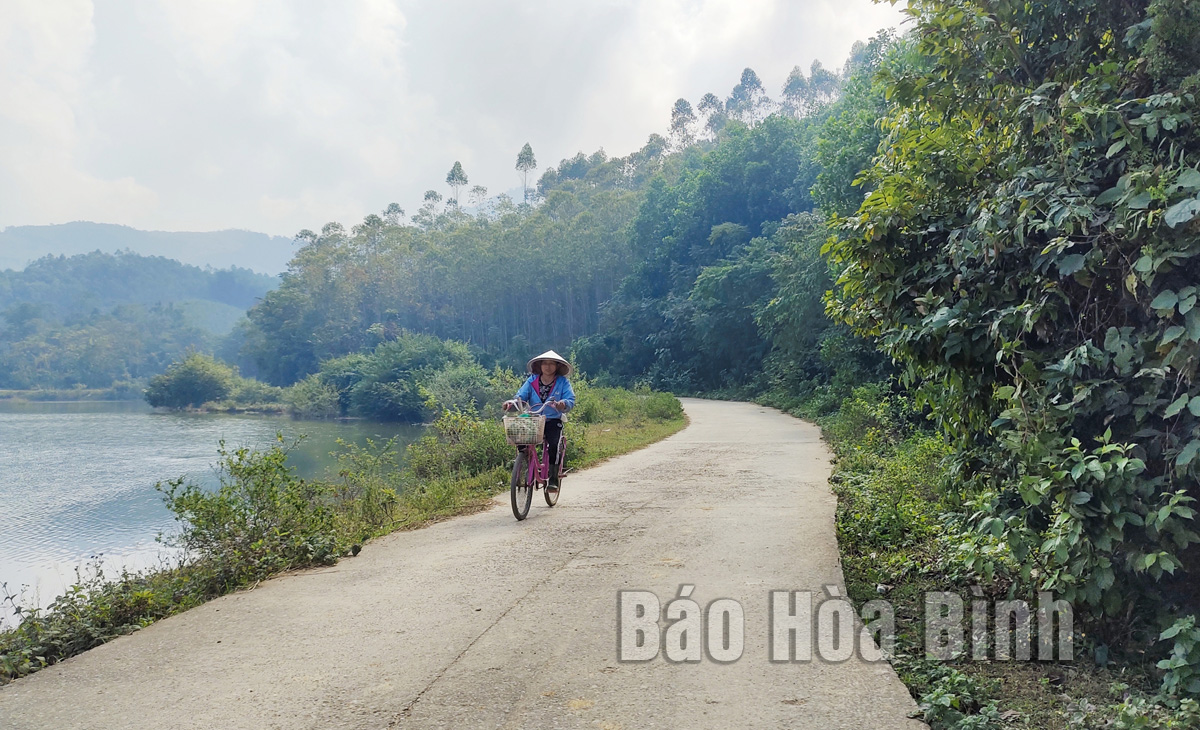
(HBO) - That is one of the goals set out in Resolution No. 03-NQ/TU, dated July 30, 2021, of the provincial Party Committee on leadership in socio-economic development in ethnic minority areas in the 2021 – 2030 period in the province.

Investing in socio-economic infrastructure,
especially roads, is an important solution to the development of ethnic
minority and mountainous areas. Photo taken in Chau hamlet, Tu Ly commune (Da
Bac).
Specifically, the province sets targets that by 2030, the
average income of ethnic minorities will reach half of the national; the rate
of poor households be reduced to less than 10%; 70% of communes in ethnic
minority and mountainous areas meet new-style rural area building standards;
and 40% of ethnic minority employees know how to work in industry, handicrafts,
tourism, and services.
Besides, the province is striving for more than 90% of
ethnic minority farmers getting involved in agricultural and forestry
production; over 90% of communes and hamlets having enough infrastructure to
meet the requirements of socio-economic development and people's lives;
basically dealing with unplanned migration in mountainous and ethnic
minority-inhabited areas; and relocating 100% of ethnic minority households
living in remote areas, where there is a high risk of flash floods and landslides./.
Since the beginning of this year, under the direction of the Department of Agriculture and Environment, the Sub-Department of Agricultural, Forestry, and Fishery Product Quality Management has strengthened the integration of the professional activities to promote and guide the organizations and individuals in the production and trading of agricultural, forestry, and fishery products to comply with the legal regulations regarding the use of chemicals, pesticides and veterinary medicines in crop cultivation, livestock farming and aquaculture. They also provide guidance to processing and manufacturing establishments on keeping the records to trace the product origins and using food additives from the approved list according to the regulations.
Hoa Binh province saw a significant rise in state budget revenue in the first two months of 2025, heard a meeting chaired by Vice Chairman of the provincial People’s Committee Quach Tat Liem.
Ha Thi Ha Chi, a 26-year-old graduate in law, has taken an unconventional path by returning to her hometown in Mai Chau district to establish the Tong Dau Cooperative, creating stable jobs for local women and bringing Thai ethnic brocade weaving to the global market.
As the Lunar New Year 2025 approached, pork prices surged, creating a profitable season for farmers in Tan Vinh commune, Luong Son district. Taking advantage of the rising demand, Can Minh Son, a farmer from Coi hamlet, sold over 30 pigs at 69,000 VND/kg, each weighing more than 100 kg. After deducting expenses, his family earned a profit of over 50 million VND.
alternate member of the Central Party Committee, Secretary of the Hoa Binh provincial Party Committee Nguyen Phi Long on March 5 had a working session with Yan Jiehe, Founder and Chairman of the China Pacific Construction Group, one of China's largest private corporations in the field of transport infrastructure. Deputy Secretary of the provincial Party Committee, Chairman of the provincial People's Committee Bui Duc Hinh and leaders of provincial departments and sectors also attended the working session.
The electronic printed circuit board (PCB) manufacturing and processing plant of Japan’s Meiko Group, located at Da River Left Bank Industrial Park in Hoa Binh city with a total investment of over 200 million USD, is expected to create thousands of jobs and make a significant contribution to the local budget.



